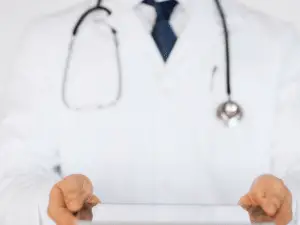The most common diagnostic tool used by doctors to help them decide if a patient with symptoms of depression is actually suffering from the full on illness (and not just a passing state of feeling sad that’s caused by a life event) is a questionnaire.
How do doctors diagnose teen depression? Here are the common tests they use:
Currently the most common ones are:
- Hamilton Depression Rating Scale (HAMD)
- Montgomery-Asberg Depression Rating Scale (MADRS)
- Beck Depression Inventory
- Patient Health Questionnaire (PHQ-9)
The doctor will likely used one of these tests to assess your teen. Questions are similar in nature for each. They ask you about symptoms your experiencing – such as: Sleep disturbances, issues with fatigue, suicidal thoughts, feeling uninspired or hopeless, loss of motivation, loss of pleasure. They will also ask your teen questions to help them understand the severity of symptoms.
Here are some examples of the types of questions you may be asked:
- Have you lost interest in activities you used to find pleasurable?
- Ae you experiencing changes in appetite such as eating too much or not feeling like you want to eat?
- Are you having difficulty concentrating?
- Having you been experiencing thoughts of suicide, death, or wanting to die?
In most cases, if your teen has felt hopeless for a least two weeks or more and it’s so bad it’s affecting their quality of life – they’re having trouble going to school, socializing, enjoying activities they once thought were pleasurable etc. – these are high indications they have depression.
The diagnostic criteria for depression appears in a medical text for mental illness called the DSM-IV. (Read the diagnostic criteria here).
The doctor will also likely run some basic biological tests to rule out other potential issues that cause depression. The most common ones are the:
- Physical exam. The doctor will likely examine your teen to ensure there is nothing notable wrong with their physiology that could be causing depression symptoms.
- Blood tests : A blood sample may be taken and a complete blood count (CBC) will be performed. This helps the doctor find out if they have any hormonal issues or a vitamin deficiency.
How doctors “fix depression”: Antidepressants
If the doctor rules out all other medical issues that could be causing your teen’s depressed mood and suggests a diagnosis of major depression they’ll likely treat them by prescribing an antidepressant medication. Doctors are trained to fix medical problems and this is how they cure depression. It’s the only tool available to them, aside from referring your teen to a different type of specialist.
As the parent, you need to be aware that the problem with this route is that they may skip identifying other potential causes for your depression. They will treat the symptoms without curing them. So, you need to investigate therapeutic forms of treatment – especially for teens – that teach your teen how to proactively deal with negative and uncomfortable emotions.
What you need to understand about antidepressant medications:
Finding the right antidepressant for your teens is like finding the perfect wedding dress. They’ll have to “try on” many to find what works for you. This is because the current diagnostic criteria that doctors use is based on asking you a line of questions, ruling out other illnesses with basic physical tests, and then making an educated assumption.
As you can see, this is hardly an effective treatment. But for now, it’s all doctors have. A questionnaire, some basic tests and a lot of trial and error with antidepressants.
It’s important that depressed teens try all other natural alternatives and therapies first before going on an antidepressant. These medications are serious and may make the symptoms more severe in individuals under 18 years of age.

